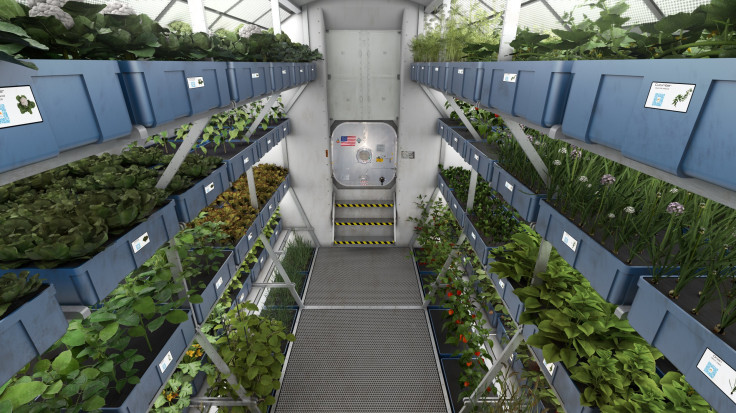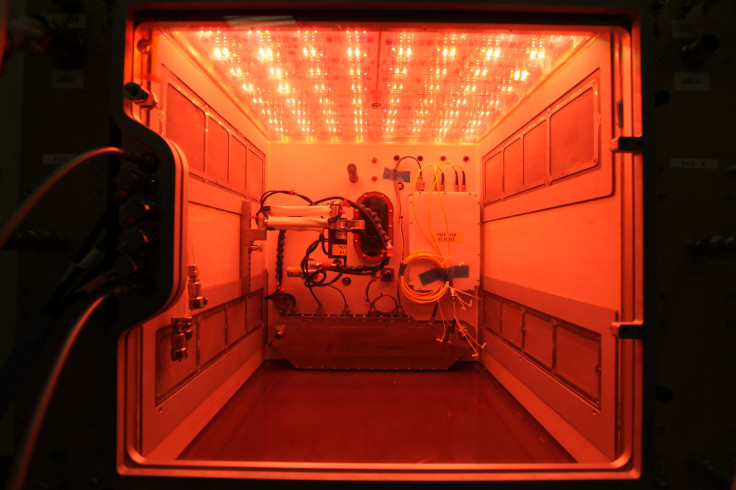NASA Tests Its Largest Plant Chamber Prototype Ahead Of Space Station Delivery

Growing plants in space is hard, for reasons more or less obvious. For one, in the microgravity environment of space, plant roots grow every which way, making it next to impossible for them to absorb the nutrients and water they need to survive.
Despite this, and several other seemingly insurmountable difficulties associated with growing plants in space, astronauts onboard the International Space Station (ISS) were, in August last year, able to grow and even eat vegetables cultivated in space — an achievement NASA described as a “historic vegetable moment.”
Those vegetables — a crop of red romaine lettuce — were grown using the “Veggie” plant growth system on the ISS. The system, installed on the orbiting space lab in 2014, uses a series of red, blue and green LEDs to stimulate plant growth from “pillows” containing seeds, fertilizers and nutrients.
Now, in another step toward cultivating fresh food in space, NASA engineers, scientists and technicians began testing a prototype of its largest plant chamber — the Advanced Plant Habitat (APH). The actual habitat, which will arrive at the Kennedy Space Center in Florida in the coming months, will be delivered to the ISS some time in 2017.
“The unit is a closed-loop system with a controlled environment than can house large plants. The system will use red, green and blue LED lights, similar to the Veggie growth system that is currently on the International Space Station,” NASA said in a statement released Wednesday. “The APH also has the capability of using white LEDs and infrared light.”

Scientists believe growing food will be a critical aspect of future long-duration space trips, including NASA’s planned crewed missions to Mars — not just because of the nutritional benefits fresh vegetables provide, but also because of the psychological boost it would give astronauts who would otherwise have to rely on packaged goods.
“The farther and longer humans go away from Earth, the greater the need to be able to grow plants for food, atmosphere recycling and psychological benefits,” Gioia Massa, NASA’s payload scientist for the Veggie project at the Kennedy Space Center, said in a statement. “I think that plant systems will become important components of any long-duration exploration scenario.”
© Copyright IBTimes 2024. All rights reserved.






















